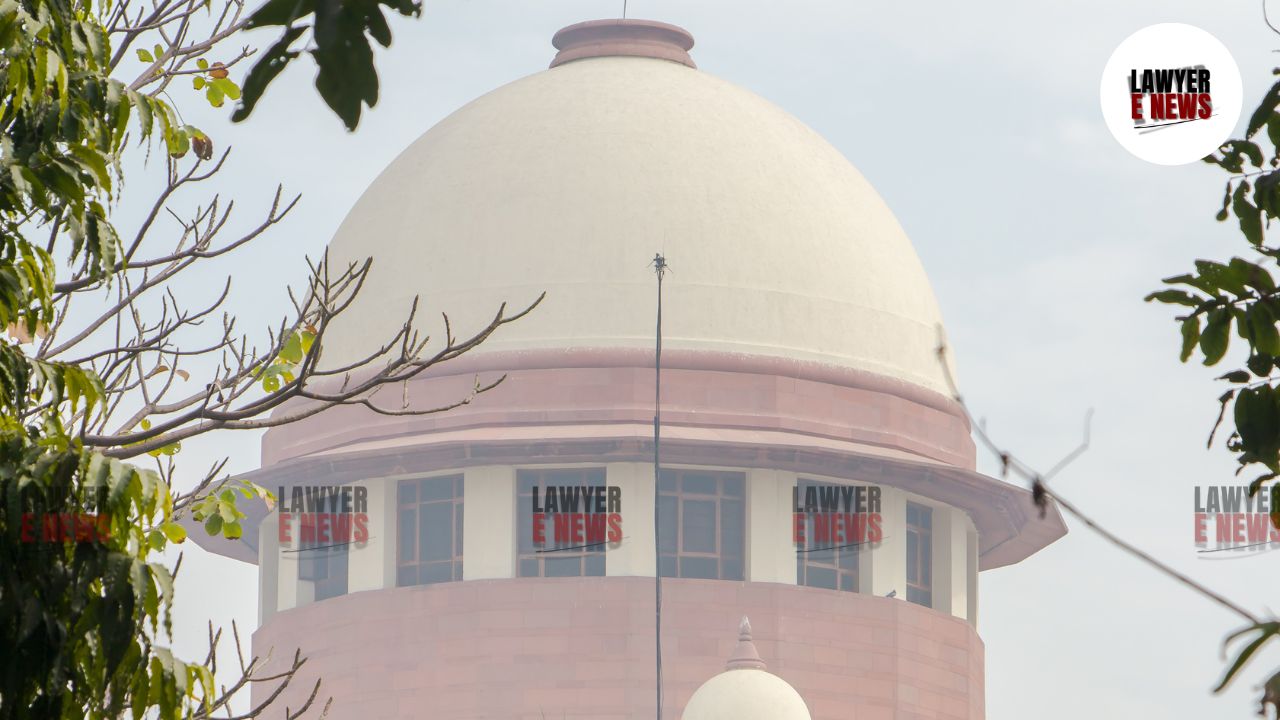-
by Admin
15 February 2026 5:35 AM



Supreme Court of India disposed of a petition filed by M/S Hi-Rise Realty regarding a dispute over the redevelopment of the Chunawala Building in Mumbai. The court directed the Maharashtra Housing and Area Development Authority (MHADA) to resolve the dispute concerning the outstanding payment between the developers and tenants. The Supreme Court emphasized that MHADA, being the competent authority, should handle factual disputes rather than the courts intervening in such matters.
The case arose when private respondents, tenants of Chunawala Building, filed a writ petition in the Bombay High Court under Article 226 of the Constitution, seeking the enforcement of a redevelopment scheme sanctioned by the state government. The tenants requested that MHADA ensure the timely completion of the project and the payment of rent by the developers as per the agreed terms.
On March 18, 2024, the Bombay High Court directed M/S Hi-Rise Realty to deposit ₹1.20 crores by March 28, 2024, as per a document issued by MHADA. The developers challenged this interim order before the Supreme Court, arguing that MHADA, as the competent authority, should have handled the matter.
The core issue was the dispute over the outstanding payment due from the developers to the tenants. The developers argued that the amount due was ₹1.77 lakhs, while the tenants claimed ₹1.20 crores. The developers contended that the High Court should not have intervened in a matter that fell within MHADA's jurisdiction, especially regarding the implementation of the redevelopment scheme.
The Supreme Court agreed with the developers, stating that MHADA is the competent authority to resolve the factual disputes in the case. The court noted that two tenants had already settled their disputes with the developers, reducing the number of contesting parties to 13.
"Disputed questions of fact can be better dealt with by MHADA, which is the competent authority," the court observed.
The court directed MHADA to take an appropriate decision on the outstanding payment after reviewing the submissions from both parties. MHADA was instructed to ensure the implementation of the redevelopment scheme as per the NOC issued in 2016.
The court also ordered M/S Hi-Rise Realty to pay the admitted amount of ₹1.77 lakhs to the tenants within two weeks.
The Supreme Court disposed of the special leave petition and the pending writ petition in the Bombay High Court, directing MHADA to resolve the payment dispute and oversee the completion of the redevelopment project. This decision reinforces the role of statutory authorities like MHADA in resolving redevelopment disputes.
Date of Decision: October 1, 2024
M/S Hi-Rise Realty vs. Nazma Jan Mohammed Kutchi.
